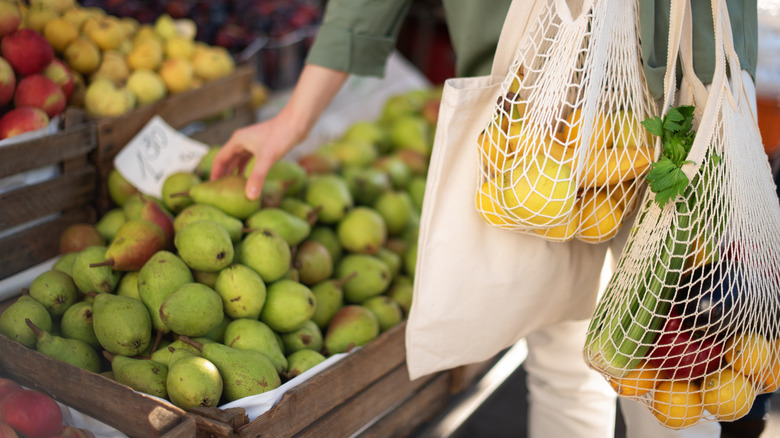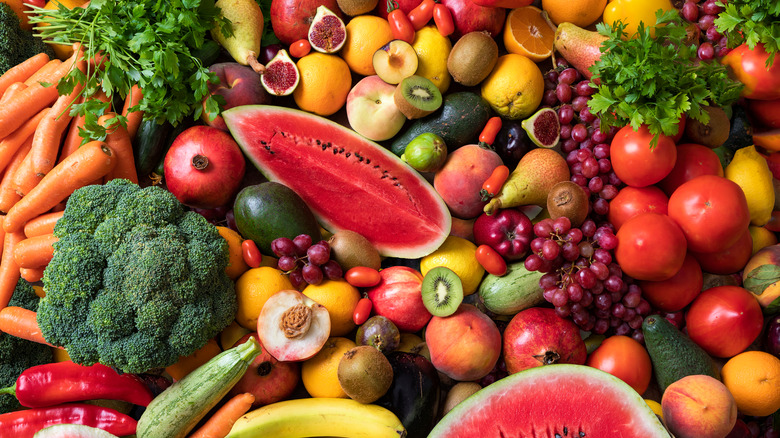The Strange Reaction You Could Get After Eating Fruit In Spring
Springtime brings long-awaited, fresh seasonal fruit. But have you ever noticed your body reacting a weird way when trying to enjoy your spring fruit of choice? Turns out, if you have allergies that flare up in the spring to things like grass or tree pollen, you could have an allergic reaction to fruit.
This cross-reaction between similar proteins in certain produce and pollen is called pollen food allergy syndrome or oral allergy syndrome (via American College of Allergy, Asthma, and Immunology). This strange phenomenon is more common than you think, affecting one in five people with grass allergies and as many as 70 percent of people with birch tree allergies.
Pollen food allergy syndrome is sparked by consuming some foods because your body is primed to fight off other spring allergies, experts tell Health — but it can happen year-round, not just in the spring. When this happens, it can prompt a tingling sensation on your lips, causing swelling and itchiness in your mouth.
How to avoid oral allergy syndrome
To eliminate these symptoms, it's best to determine which fruits or vegetables are affecting you. Tomatoes, peaches, or potatoes may be the culprit if you experience hay fever from grass pollen. As for those with birch or alder tree allergies, you may want to avoid apples, celery, or cherries, according to the American College of Allergy, Asthma, and Immunology.
Not wanting to give up your favorite fresh foods? Experts say peeling or cooking fruit can help eradicate allergy symptoms, as the allergy is typically triggered by raw fruit in its peel (via Health).
You should also consult with an allergist if your symptoms progressively worsen, or are affecting more of your body. Although it is rare, with only 9 percent of people having reactions beyond their mouth, it can lead to anaphylactic shock, which can be life-threatening. This occurrence is even more rare at 1.7 percent, but an allergist can tell you if you should carry epinephrine.


